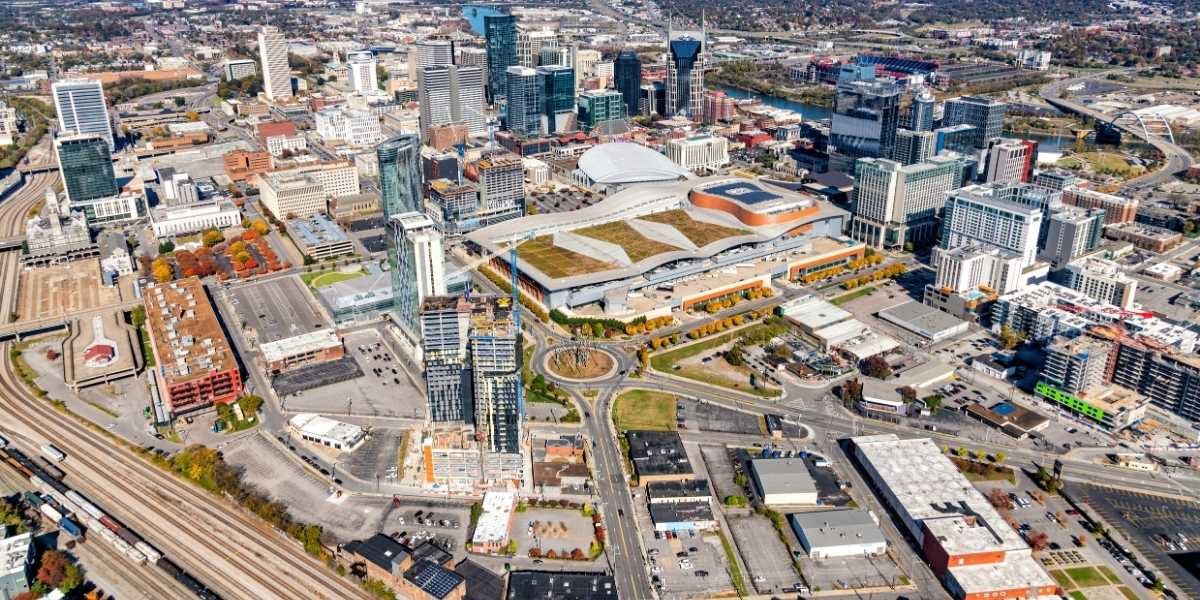Nashville is known for its legendary music scene, Southern charm, and vibrant culture. But what truly defines this city is the diversity of its neighborhoods. Each one tells its own story, shaped by history, community, and character. From historic districts to creative hubs, Nashville’s neighborhoods are as dynamic as the people who live in them.
Understanding the character of each neighborhood offers a glimpse into the city’s soul. Some areas pulse with nightlife and live music, while others offer a quiet retreat with historic homes and tree-lined streets. What they all share is a strong sense of identity that contributes to the rich fabric of the city.
Read Also: R&B Music: The Evolution of a Soulful, Groovy Genre
How Do Historic Roots Influence Nashville’s Neighborhoods?
History runs deep in Nashville’s neighborhoods, influencing their architecture, culture, and atmosphere. In areas like Germantown, the city’s German immigrant past is reflected in the 19th-century buildings and cobblestone streets. Once a forgotten part of town, Germantown has evolved into a popular spot for food lovers and architecture enthusiasts.
East Nashville, long considered one of the most eclectic areas of the city, holds its roots in resilience. Once hit hard by economic shifts and natural disasters, it has reinvented itself over the years through a strong community spirit and creative energy. Its Victorian homes, street art, and indie businesses reflect a neighborhood that embraces both heritage and reinvention.
What Defines the Cultural Energy of Nashville’s Neighborhoods?
The culture of Nashville’s neighborhoods varies widely from one part of the city to another. In 12 South, creativity takes center stage. Murals line the walls, local boutiques thrive, and the walkable streets offer coffee shops and restaurants with a personal touch. The vibe here is youthful, stylish, and unapologetically local.
In The Gulch, modern development meets urban flair. Known for upscale dining and sleek high-rises, it represents Nashville’s push toward becoming a cosmopolitan city while still honoring its roots. Music venues and recording studios nod to the city’s legendary sound, making it a cultural crossroads for both newcomers and longtime residents.
Meanwhile, North Nashville is a hub of African American history and culture. With institutions like Fisk University and landmarks tied to the Civil Rights Movement, it remains an essential part of the city’s identity. The neighborhood’s cultural contributions continue to shape the city’s evolving story.
How Are Nashville’s Neighborhoods Adapting to Change?
Like many urban areas, Nashville’s neighborhoods are experiencing rapid change. Growth brings new opportunities but also challenges related to affordability, identity, and development. In Wedgewood-Houston, warehouses once used for manufacturing now house galleries, studios, and event spaces. This transformation has attracted artists and entrepreneurs, shifting the area’s purpose while raising questions about long-term impact on the community.
In Sylvan Park, change appears more measured. With a mix of classic bungalows and new builds, it reflects a neighborhood balancing preservation and progress. Residents here value their green spaces, walkability, and tight-knit feel, even as the area continues to evolve.
Each neighborhood faces its own version of change. The challenge is maintaining the character that makes these communities special while making room for future generations. Growth doesn’t have to mean erasure. In the best cases, it becomes a conversation between past and present.
Why Does Neighborhood Identity Matter in Nashville?
The identity of Nashville’s neighborhoods shapes the city as a whole. When communities have strong identities, they foster pride, engagement, and belonging. Whether it’s the music echoing from Music Row, the murals of Five Points, or the jazz history rooted in Jefferson Street, each neighborhood contributes to the rhythm of the city.
Neighborhood identity also affects how residents experience their city. People are drawn to places where they feel seen and connected. Whether it’s the comfort of a favorite diner or the familiarity of neighbors greeting each other by name, these small details create a sense of home.
The city’s unique neighborhoods also attract visitors, giving them more than tourist landmarks. They offer experiences rooted in local flavor, from festivals to farmers markets. This deeper connection encourages sustainable tourism and economic vitality without losing the authenticity that makes Nashville so beloved.
Read Also: Nashville Yards: A New Era of Urban Development
How Is the Future of Nashville’s Neighborhoods Shaping Up?
The future of Nashville’s neighborhoods will likely be defined by continued growth and creative innovation. As the city expands, the focus is shifting toward sustainable development, inclusive planning, and preserving neighborhood character. Urban planners, developers, and residents are now engaging in more conversations about what kind of city they want to build together.
Efforts are being made to protect green spaces, increase public transit options, and ensure access to affordable housing. Community organizations and neighborhood associations are also playing a greater role in decision-making processes. This kind of collaboration is key to ensuring that as Nashville grows, its neighborhoods don’t lose their unique voices.
New challenges are always on the horizon. But by prioritizing community and cultural integrity, Nashville’s neighborhoods can remain both vibrant and rooted, offering something meaningful to longtime residents and newcomers alike.














